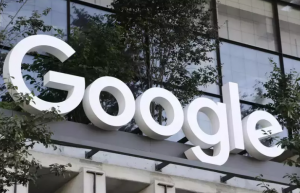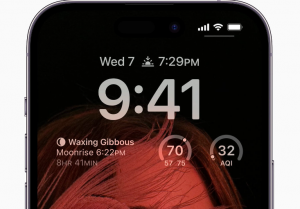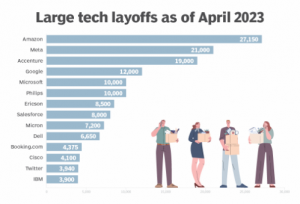Decoding the Urban Dictionary: A Deep Dive into Crowdsourced Linguistics

The internet has revolutionized how we communicate, consume information, and even how our language evolves. One fascinating example of this linguistic evolution is the Urban Dictionary, a crowdsourced online lexicon teeming with slang, colloquialisms, and emerging terms. But how accurate is this digital repository of informal language? And how does it compare to more traditional dictionaries? Let’s take a deep dive into the fascinating world of the Urban Dictionary, exploring its strengths, weaknesses, and its impact on the ever-changing landscape of language.
Urban Dictionary vs. Wiktionary: A Tale of Two Dictionaries
To understand the unique position of the Urban Dictionary, it’s helpful to compare it to another crowdsourced dictionary, Wiktionary. While both rely on user contributions, their approaches differ significantly.
Lexical Coverage and Overlap:
A study by Dong Nguyen at the Alan Turing Institute revealed some interesting insights into the lexical coverage of both platforms:
- Limited Overlap: A surprisingly small 28% of words are shared between the two dictionaries.
- Urban Dictionary’s Niche Focus: Many terms on Urban Dictionary are highly specific to particular subcultures or communities, explaining the limited overlap.
- Wiktionary’s Broader Scope: Wiktionary tends towards more established words and encyclopedic entries, contributing to its broader lexical scope.
Definitions: From Formal to Free-Form:
The most striking difference lies in the nature of definitions:
- Wiktionary’s Formal Approach: Wiktionary emphasizes clear, concise definitions with a focus on objectivity and accuracy. Moderators and editors ensure quality control.
- Urban Dictionary’s Informal Style: Urban Dictionary embraces a more free-flowing style, allowing for humor, personal opinions, and even offensive language.
The Role of Opinions and Subjectivity:
This difference in style leads to a crucial distinction:
- Wiktionary’s Focus on Objectivity: Wiktionary strives for neutrality, aiming to present definitions free from personal bias.
- Urban Dictionary’s Subjectivity: Urban Dictionary thrives on subjectivity, with definitions often reflecting personal experiences, humor, and even rants.

Strengths of the Urban Dictionary
Despite its unconventional approach, the Urban Dictionary offers several unique advantages:
Capturing the Zeitgeist: Speed and Relevance:
- Rapid Evolution: Urban Dictionary excels at capturing emerging slang and internet lingo, often reflecting new terms far quicker than traditional dictionaries.
- Cultural Relevance: It provides a window into current trends, memes, and subcultures, making it a valuable resource for understanding contemporary language use.
A Diverse Tapestry of Language:
- Regional Variations: Urban Dictionary showcases the diversity of language, capturing regional slang and variations that might not be documented elsewhere.
- Subcultural Expressions: It gives a voice to various subcultures and communities, documenting their unique slang and expressions.
Limitations of the Urban Dictionary
However, the platform’s strengths are also its weaknesses:
Accuracy and Reliability Concerns:
- Lack of Verification: The absence of formal editorial oversight means definitions can be inaccurate, misleading, or outright fabrications.
- Vandalism and Misinformation: The open nature of the platform makes it susceptible to vandalism, trolling, and the spread of misinformation.
Potential for Bias and Misinformation:
- Amplification of Prejudice: The lack of moderation can lead to the amplification of harmful stereotypes and prejudices through biased definitions.
- Offensive Content: The platform’s tolerance for offensive language can create a hostile environment for some users.

The Impact of the Urban Dictionary
The Urban Dictionary’s impact extends beyond simply documenting language:
Reflecting vs. Shaping Language Change:
- A Mirror to Society: It reflects evolving social attitudes, cultural trends, and the impact of technology on language.
- Potential Influence: While its role in shaping language is debatable, it undoubtedly raises awareness of new terms and expressions.
A Valuable Resource for Linguists and Researchers:
- Studying Language Evolution: Linguists and researchers can use Urban Dictionary data to study slang, neologisms, and the dynamics of language change.
- Understanding Online Communication: It provides valuable insights into online communication styles, internet culture, and the evolution of digital slang.
Conclusion: The Future of Dictionaries in the Digital Age
The Urban Dictionary exemplifies the evolving nature of dictionaries in the digital age. While traditional dictionaries maintain their importance for formal language, platforms like Urban Dictionary highlight the need for resources that capture the dynamism and fluidity of online communication.
As language continues to evolve at an unprecedented pace, crowdsourced dictionaries will likely play an increasingly significant role. However, it’s crucial to approach these platforms with a critical eye, recognizing their limitations alongside their value.

Further Reading:
- Merriam-Webster Online Dictionary: https://www.merriam-webster.com/
- Oxford English Dictionary: https://www.oed.com/
- Wiktionary: https://www.wiktionary.org/








